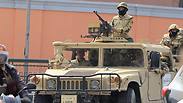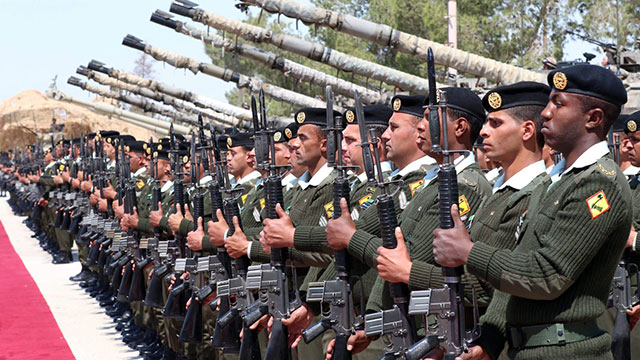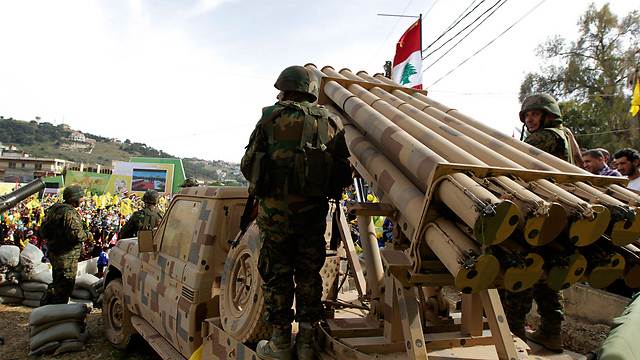
Egyptian Military patrol vehicles
Photo: Reuters
"Israel provides Jordan and Egypt with intelligence assistance in their fight against ISIS," the IDF deputy chief of staff, Maj. Gen. Yair Golan, said on Wednesday, describing the US backed Arab neighbours as stable despite the insurgent threat.
Egypt made peace with Israel in 1979, followed by Jordan in 1994. They are the only Arab countries to have treaties with Israel, a matter unpopular with many Egyptians and Jordanians and which generally keeps Amman and Cairo quiet about the ties.
Golan said in a briefing that the countries were working with Israel as they try to beat back ISIS.
"Egypt fights ISIS in the Sinai peninusula. Jordan is terrified by the presence of the ISIS in Jordan's cities and towns. And we try to work with them in order to contribute something to their security," he said.
The help came "mainly by providing our intelligence, and you do know that while fighting all sorts of insurgency, intelligence is the most important element in the whole system," Golan told the Foreign Press Association in Jerusalem.
Despite deeming this military cooperation as unprecedented, Golan cautioned, "I wouldn't describe that as some sort of reconciliation between the people. But it is a good starting point and I'm quite optimistic concerning that."
The general described Jordan as stable, though it has seen major refugee influxes from Syria and Iraq even as it watches those frontiers for Islamist militant infiltration.
Egypt's large population and economic struggles during recent political chaos present a greater challenge, he said.
'Hezbollah has 100,000 rockets
Golan further went on to send a stern warning to Lebanese militant group Hezbollah, saying any future war between the two enemies will unleash "devastating" damage on Lebanon.
He said that Hezbollah has developed capabilities that present "unprecedented" threats to Israel, and that Israel estimates the group has over 100,000 rockets and missiles in its arsenal.
Golan added that any future war will be "much harsher" than anything experienced in the past 20 years.
"In any future crisis, they are not going to see a small war in Lebanon. It's going to be decisive. It's going to be full-scale war," he said.
"That could create devastating damage to Lebanon," including in civilian areas, where he said Hezbollah hides and operates. "There is no other way to take out this threat without ... creating large damage to the Lebanese infrastructure, to Lebanese houses and other civilian facilities."


















